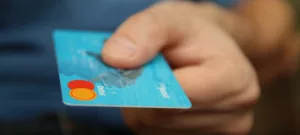A credit card is more than “just another way” to make purchases. When used responsibly, credit cards can help you get favourable loans at lower-interest rates, help you score price-slashed insurance, and certain plans. A credit card is by and large leaps and bounds more useful than a debit card. Do you personally know everything there is to know about credit cards? Let’s take a look.
1. Secure vs. Unsecure
Not all credit cards are created equal – and you’d be wise to compare credit cards to see why that is. For now, though: there are two primary types: unsecured and secured. Here are the differences and collateral between them:
- Needs upfront deposit
- Credit limit is determined by deposit
- Receive monthly statements regarding minimum payment due
- Can be promoted to “unsecured” card overtime
Unsecured cards…
- Doesn’t require initial deposit
- Must have fair (or better) credit
- Higher APRs
Issuers take on more risk
2. Not a Debit Card
Do you know the difference between a debit card and credit card? A credit card—in laymen’s terms—is like using a short-term loan to make a purchase. On the other side of the coin, a debit card (you probably know) let’s you make purchases immediately. However, credit cards carry interest with them – a staggering amount of interest that unfortunate people cannot pay off. You must always pay the balance before the end of the billing cycle to avoid these interest rates.
3. APR
(Remember: the APR is what you’ll be charged if you don’t pay off your full payment balance dues.) To figure out the interest accrued for the month, a little calculation is necessary. If your card’s APR is 20%, then your periodic interest rate would be ~0.55%. Dividing your APR by 365 – one for every day of the year. Now multiply your daily balance, periodic interest rate, and the number of days in the current month to figure out the accrued interest.
4. Interest
Credit card interest, despite popular belief, isn’t assessed on the card’s balance after the payment due date. You accrue interest if, by the payment date, you don’t pay the full balance owed. The way it works is this: suggesting you have a balance of $1,000, and you accrue interest over an 11-day period, you paid off $200. On the 21st day of accruing interest, you paid off $350. That means your daily balance average would be $750. (This all depends on your APR, of course.)
5. Hidden Fees
There are a lot of credit card fees that could “sack” you before you have a chance to breathe. Avoid being taken for a fool by learning those fees – several of which are as follows:
- Late payment fees occur when you don’t pay the minimum payment by the due date on your card statement. (Usually ~$35.00). Can be avoided by making timely payments.
- Balance transfer fees: 3-4% in most cases; occurs when you move a balance from one card to another card. This is usually done by people in credit card debt.
- Annual fees are charged on (mostly) secured and unsecured credit cards. A fee card may reward you with higher (and more valuable) reward points and systems if your spending is high enough and you make timely payments.
6. Must Pay More Than Bare Minimum
Paying off credit cards keeps you in the clear and avoiding high-interest fees. However, paying them off using the bare-minimum amount required won’t pay them off. Do not—under any circumstances—use money you don’t have. This is the #1 reason most credit card holders get themselves into debt.
7. Your FICO Score
Credit scores can make or break being issued a credit card. Several factors that determine your FICO score include:
- New credit
- Credit history (and length)
- Payment history
Naturally, making full payments on time (every time) improves your credit score – increasing the likelihood that you’ll be eligible for future rewards.
Conclusion
No matter which credit company you decide to go with, always be sure to verify the current rates, fees and terms for yourself. There is nothing worse than putting your financial security at risk because of negligent research.








